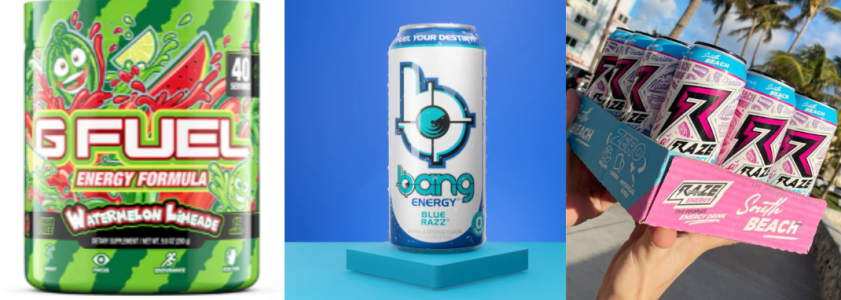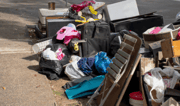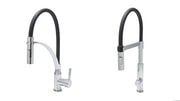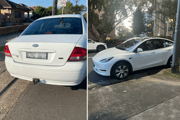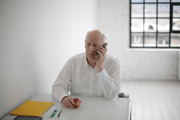Health experts issue warning on energy drinks with dangerous caffeine levels
By
Danielle F.
- Replies 12
Many of us rely on caffeine for an extra boost of productivity.
May it be through a cuppa, freshly brewed tea, or energy drinks, these drinks keep us going throughout the day.
However, a recent recall of caffeinated drinks left many consumers palpitating and concerned.
Health officials issued a stern warning regarding a selection of energy drinks that contained dangerously high levels of caffeine.
South Australia Health seized approximately 700 energy drink products from retailers across the region.
Investigations revealed that these drinks contained nearly double the legal caffeine limit of 320 mg per litre.
Among the brands pulled out were GFUEL, Bang, and Raze Energy, with their products containing a staggering 300 mg of caffeine per 473 ml can.
Other brands like C4, Ghost, Ryse Fuel, 3D, and Redcon 1 were also pulled out, as their drinks contained 200mg of caffeine for the same can size.
These beverages, which were compared to consuming the caffeine equivalent of nine cans of Coca-Cola, were pulled from shelves in a decisive crackdown.
Consumption of large amounts of caffeine could lead to several health issues—insomnia and anxiety, to more severe conditions such as cardiovascular complications, heartburn, ulcers, and seizures.
In extreme cases, excessive caffeine intake could cause death.
SA Health inspectors found that 18 stores sold these highly caffeinated drinks.
Two businesses were fined $3000, while the other 13 received warning letters.
Acting Chief Public Health Officer Dr Chris Lease emphasised the importance of educating retailers about the regulations.
'These drinks are imported from overseas, and retailers do not realise that they do not comply with our regulations,' Dr Lease stated.
'We’re working with retailers to educate them on the regulations and stop these drinks from making their way onto shelves and issuing penalties to repeat offenders.'
The Australian Department for Agriculture, Fisheries and Forestry also placed eight holding orders on various non-compliant energy drink brands.
SA Health Minister Chris Picton expressed particular concern for the wellbeing of children and teenagers, as these products target them with their marketing strategies.
'I would encourage businesses to check that the energy drinks they sell comply with national food standards, and those purchasing energy drinks should always check the caffeine levels first,' Minister Picton said.
'We’re actively working to remove the products from shelves, but businesses must play their part too by not importing or stocking these products.'
This recall is a reminder to check nutrition labels, not just for caffeine content but for all ingredients that may pose health risks.
This could also be an opportunity to check on the energy drinks our grandchildren consume and educate them about the potential dangers of energy drinks.

Have you or someone you know experienced adverse effects from high-caffeine beverages? Share your thoughts and opinions with us in the comments below.
May it be through a cuppa, freshly brewed tea, or energy drinks, these drinks keep us going throughout the day.
However, a recent recall of caffeinated drinks left many consumers palpitating and concerned.
Health officials issued a stern warning regarding a selection of energy drinks that contained dangerously high levels of caffeine.
South Australia Health seized approximately 700 energy drink products from retailers across the region.
Investigations revealed that these drinks contained nearly double the legal caffeine limit of 320 mg per litre.
Among the brands pulled out were GFUEL, Bang, and Raze Energy, with their products containing a staggering 300 mg of caffeine per 473 ml can.
Other brands like C4, Ghost, Ryse Fuel, 3D, and Redcon 1 were also pulled out, as their drinks contained 200mg of caffeine for the same can size.
These beverages, which were compared to consuming the caffeine equivalent of nine cans of Coca-Cola, were pulled from shelves in a decisive crackdown.
Consumption of large amounts of caffeine could lead to several health issues—insomnia and anxiety, to more severe conditions such as cardiovascular complications, heartburn, ulcers, and seizures.
In extreme cases, excessive caffeine intake could cause death.
SA Health inspectors found that 18 stores sold these highly caffeinated drinks.
Two businesses were fined $3000, while the other 13 received warning letters.
Acting Chief Public Health Officer Dr Chris Lease emphasised the importance of educating retailers about the regulations.
'These drinks are imported from overseas, and retailers do not realise that they do not comply with our regulations,' Dr Lease stated.
'We’re working with retailers to educate them on the regulations and stop these drinks from making their way onto shelves and issuing penalties to repeat offenders.'
The Australian Department for Agriculture, Fisheries and Forestry also placed eight holding orders on various non-compliant energy drink brands.
SA Health Minister Chris Picton expressed particular concern for the wellbeing of children and teenagers, as these products target them with their marketing strategies.
'I would encourage businesses to check that the energy drinks they sell comply with national food standards, and those purchasing energy drinks should always check the caffeine levels first,' Minister Picton said.
'We’re actively working to remove the products from shelves, but businesses must play their part too by not importing or stocking these products.'
This recall is a reminder to check nutrition labels, not just for caffeine content but for all ingredients that may pose health risks.
This could also be an opportunity to check on the energy drinks our grandchildren consume and educate them about the potential dangers of energy drinks.
Key Takeaways
- Health officials issued a warning over popular energy drinks due to their high caffeine content.
- Approximately 700 drinks were removed from South Australian retailers for containing nearly double the legal caffeine limit.
- South Australia Health inspectors found 18 stores selling highly caffeinated drinks and issued fines and warnings to non-compliant businesses.
- Consumers were urged to check the caffeine levels of energy drinks. At the same time, businesses were encouraged to comply with national food standards.

